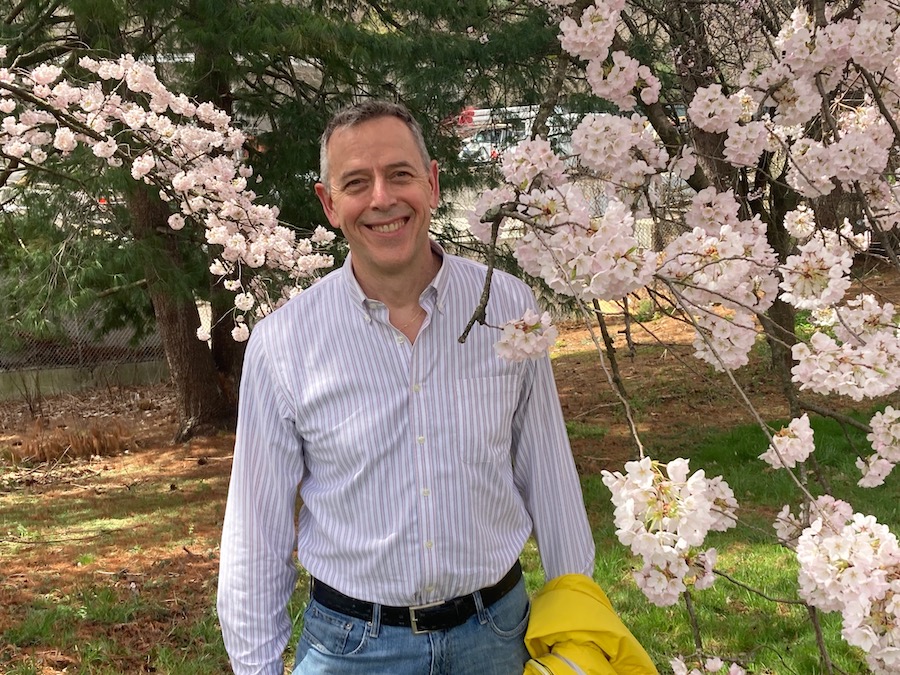
By Dwight Panozzo, PhD, LCSW
I have known since the age of 4 that I was sexually attracted to males. I can’t really say why it is that way. It is, from my perspective, ineffable—although I do believe that, in time, science will unlock what are probably many mysteries that add up to my only wanting to set up housekeeping with a man. Basically, the gay part of my LGBTQ Humanist identity is a no-brainer for me.
Why be a Humanist?
What is more complicated, what has been more difficult for me, is my own path to becoming a Humanist. I was born into a family of Protestants. They attended church every Christmas Eve and Easter, but their attendance was otherwise spotty and their rationales for the days they attended or not were self-serving—adhering to a calculus they would probably never be able to admit or even be clearly aware of. They were, however, believers and, to the extent that they busied themselves with things related to my upbringing, they wanted me to also be a believer—to know what a friend we have in Jesus.
Expecting the End Times
I ate up these beliefs along my anxiety-ridden path through my teenage years—gobbling up every Hal Lindsay book ever written, certain the Rapture was coming any second to whisk away the believers before the End Times came—all this at 14, while smoking a pack and a half of Marlboro Lights a day after I was shipped off to boarding school for failing the ninth grade. This was also the time when I grappled with wanting to make love to other guys in a culture that frequently showed its hatred for my desires. Clearly, I had reason to expect the End Times! What I cannot escape, however, is the concomitant softness of mind that I had back then as I displayed no ability to ask why everyone else didn’t also believe that doom was just around the corner.
With the help of deeply principled teachers and friends, I managed to move beyond my expectations of imminent doom. Hal Lindsay was wrong; there was no Rapture.
God is a freeloader
What stuck with me was a sense of the importance of our principles and caring for one another. In time I grew to understand that God, Jesus, and the Holy Spirit were freeloading. It took me a very long time, however, to begin to even grasp that last part, and I have the impression that most believers have a difficult time with that part of the equation, as well. Perhaps this is to be expected, given the nature of the human mind and the firehose of half-truths and utter make-believe we generally force into children’s minds from the moment they are born. I am quite convinced that turning down the pressure of that firehose is a key ethical responsibility for all of us, despite there being so much potential for fame and fortune to be attained by not doing so.
I’ve tried them all but only Humanism works
Over my 57 years of life, my understanding has continued to shift about belief in general. I have gone through my periods of Unitarianism, Buddhism, Deism, and big “A” Atheism, but I consider myself to be a failure at all these “isms.” Instead, I am left only with Humanism—focusing on my responsibility to speak only what is known to be true, to question any concept lacking very clear evidence of validity, and, above all, to act with integrity in my dealings with others, be they human or sentient in a manner that I barely understand.
Faith without works is dead
That’s most of the puzzle, but there’s still one very important part left and, as with everything else I’ve ever come across, it’s already been quite well thought through by countless others who came before me—including those who never eschewed their belief in an invisible friend. That very important part is the doing good part, because it is not enough to be good. Even though there are no gods to control my destiny, I must do good and follow the campsite rule as described by Dan Savage—leave the world a better place than I found it. While Savage coined the term to describe ethical interactions in intimate relationships, I see it as a polestar for all relationships.
You can’t be good if you’re a tribalist
I could get far more for myself and those who share my genes by drinking the Kool-Aid and pretending to follow a particular belief system or ethnicity, but I aspire to be a citizen of the World—to share the fruits of my intellect and labor with those far beyond my knowing, not just for myself, not just for my family, and not just for my tribe. That is why I am an LGBTQ Humanist.
Dwight Panozzo is a longtime member of the Ethical Culture Society of Bergen County.
